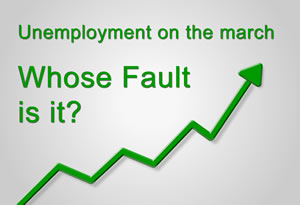Personally I wouldn’t blame the exchange rate, the government, or any lack of entrepreneurship. The world is really struggling if you hadn’t noticed and the ability of our firms that export or compete with imports, to maintain sales, is being whacked. From that much flows – reduction of investment spending by these firms, a drop in orders for raw materials and commodities, and sackings of personnel. And then we see all the knock-on effects through the towns in which these outfits are sited.
That’s then the reality we face – and with Greece, Spain, Portugal all still basket cases for the Germans to spend their money on; and with the US having to “DO SOMETHING” before the automatic tax increases and spending cuts of the legislated “fiscal cliff” take effect and impose austerity on that economy, plus China still in search of an end to its growth slowdown – you could be forgiven for thinking that New Zealand faces a far more hostile global environment yet before we can be confident our economy has stopped softening. But hey, Auckland properties are on a tear so we’ll all be in clover soon.
If you believe that your myopia really is fatal. What can the authorities do? Yes the global slowdown is not their fault but does this mean they’re helpless?
Let’s start with the Reserve Bank which, faced with one of the lowest inflation rates in the developed world is maintaining one of the highest interest rates. What sort of time warp are these folk in? Their monetary policy settings have no justification whatever. It persists due to intellectual sloth.
Then consider their prudential policy that they have just arrogantly conceded might have played a role in the housing market distortion and the grotesque misallocation of investment monies over the last twenty years. Better late than never I guess but that’s as close as we’re going to get to an acknowledgement from the RBNZ that their last two Governors and RB Boards should have been sacked for incompetence over the conduct of prudential policy.
The Bank goes on and on about stress tests and purports that unless the favouritism they extend to mortgage lending is going to lead to a banking collapse then it must be right, No matter it’s been responsible for steering scarce capital into the business of multiple housing ownership and starved the finance to manufacturing and service industries. With a Reserve Bank like that who needs politicians to deny economic and employment growth? The issue with setting prudential limits on the various types of bank loans shouldn’t be narrowly focused on avoiding bank collapses. Setting these limits should take account of the impact they have on the year-to-year functioning of the whole economy, how they are influencing the allocation of investment monies across industries and households. The Reserve Bank’s influence on our economy via its prudential policy for the lending shops out there is massive. When you have a situation where a mortgage loan can be 3 or more times as attractive to a bank as making a loan to a business, it is just nonsense to argue the Reserve Bank isn’t determining the shape of our economy.
We are over-invested in housing and under-invested in business sectors, everyone who’s not into property speculation agrees. We have high unemployment because investing this way produces lower incomes and fewer jobs. The Reserve Bank’s directives to banks on where and how much they should give preference to the various types of loans, sits right at the heart of that distortion. It is responsible for paradox of a jobless property price bubble we are now experiencing – totally responsible.
Now let’s turn to the tax regime. We know that the biggest mugs here are PAYE tax payers. If we look across our society at the ratio of tax paid to wealth, the tax burden falls markedly as wealth rises. If we look at the ratio of tax paid to the increment to wealth enjoyed each year (so taxed income plus capital gain) we see the tax burden plunges the more people make. It is pretty clear our tax regime is broke. Then consider that families on $100,000 taxable income can qualify for a benefit from Working for Families – and you see just how broke it is.
The timidity of politicians to shirk the responsibility of leadership in favour of personal tenure is what leads to this ingrained inertia on policy improvements. For example, we hear over and over the concession that taxing capital is preferable to taxing one form of the increment to capital (declared income), but nobody has the fortitude to bring in a capital tax to close the loopholes.
You get the politicians, the policies and the outcomes you want. Don’t blame anyone but yourself.
[message_box title=”Latest Post” color=”red”]National Minister mouthpiece for dirty dairy – Yet another demonstration of the National cabinet’s open hostility to environmental protection… Read more[/message_box]

